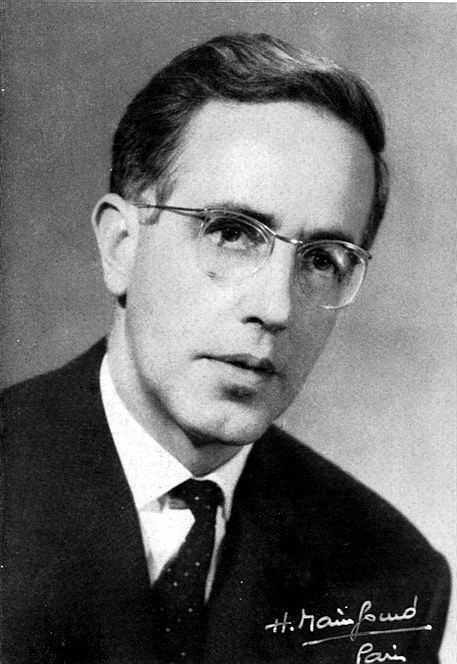| Profile | Major Works | Resources |
Edmond Malinvaud, 1923-2015

French general equilibrium and general
disequilibrium theorist and
econometrician.
Originating from Limoges, France, Edmond Malinvaud studied at École polytechnique in Paris. After a brief interruption during the war, Malinvaud joined the fledgling French national statistics and economics institute (INSEE) in 1946, completing his education in economics at its attached school (now the École Nationale de la Statistique et de l'Administration Economique, ENSAE).. Malinvaud was, together with Debreu, a student of France's greatest Walrasian economist, Maurice Allais. On Allais's recommendation, Malinvaud went with a Rockefeller fellowship to join the the Cowles Commission in the United States in 1950-51.
Malinvaud returned to the INSEE thereafter, but the Cowles experience propelled Malinvaud work in many directions both in economics and econometrics. Malinvaud's famous article, "Capital Accumulation and the Efficient Allocation of Resources" (1953), incorporated an intertemporal theory of capital into a very natural place in Walrasian general equilibrium theory and helped resolve the old capital theory conflict between Knight and Hayek (and, in part, kept G.E. immune from the later Cambridge Capital Controversy), as well as introducing the concept of dynamic efficiency.
He also worked on uncertainty theory, notably the theory of "first order certainty equivalence" (1969) and the relationship between individual risks and social risks (1972, 1973). His 1971 microeconomics textbook and his Cowles-inspired econometrics textbook, Statistical Methods in Econometrics (1964) have since become classics.
Malinvaud's main contribution to macroeconomics is represented in his slim 1977 book, Theory of Unemployment Reconsidered which provided a clear and unified reconstruction of the dynamic "disequilibrium" macro theory of Clower, Leijonhufvud and the European "Non-Walrasian" theory - that is, general equilibrium theory with disequilibruim features. Malinvaud's influence on the subsequent generation of French economists has been profound.
With a few interruptions, Malinvaud has worked at the Institut National de la Statistique et des Etudes Economiques (INSEE) in Paris, France since 1946, and been its director since 1974. He was also chair of economic analysis at Collège de France from 1984 to 1993.
|
Major works of Edmond Malinvaud
|
|
HET
|
|
Resources on E. Malinvaud
|
All rights reserved, Gonçalo L. Fonseca
